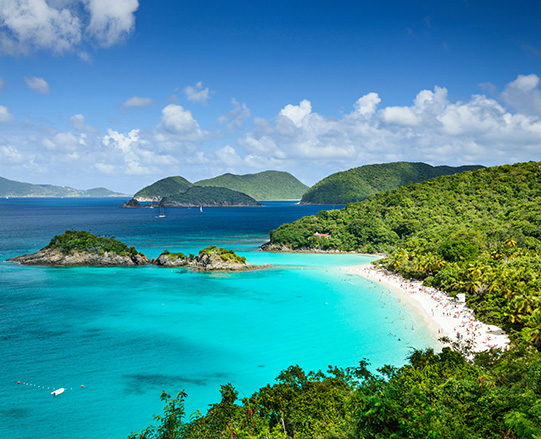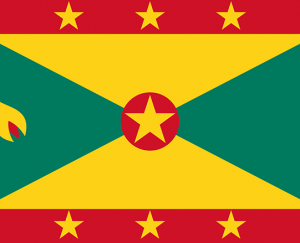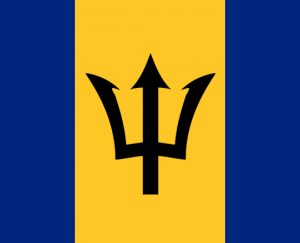A series of cases in the Eastern Caribbean challenging colonial-era laws that criminalise ‘buggery’, ‘unnatural connexion’, ‘gross indecency’ and ‘serious indecency’, as part of a local, regional and international collaboration began in 2015. These cases challenge some of the last remaining vestiges of criminalisation of LGBT people in the Americas and have the potential to wipe out the scourge of discriminatory criminal law regimes that have been in place since colonial times.
The first challenge concluded in July 2022, with the High Court of Antigua & Barbuda finding that the criminalising laws in that country were unconstitutional. This decision was closely followed by two more successes in August and December 2022, in the High Courts of St Kitts & Nevis and Barbados. In April 2024, the High Court of Dominica also held that the criminalising laws are unconstitutional. The judges in all four cases declared that the laws are ‘void’ and of ‘no effect’ to the extent that they criminalise consensual sexual activity in private between persons of the same sex who are 16 or over. Deadlines for any appeal have now passed in Antigua & Barbuda, St Kitts & Nevis and Barbados.
Summary
Several countries in the Eastern Caribbean still retain British colonial-era laws that make it an offence for people of the same sex to engage in consensual sexual activity in private. With technical assistance from the Trust and a team of local and regional lawyers, activists in the region embarked on strategic litigation to challenge these laws, including in Antigua & Barbuda, Barbados, Grenada, St Kitts & Nevis and St Lucia, as a violation of domestic constitutional law and international human rights law.
For Antigua & Barbuda, Grenada, St Kitts & Nevis and St Lucia the High Court of Justice of the Eastern Caribbean Supreme Court in each country is the court of first instance, and the Court of Appeal of the Eastern Caribbean Supreme Court is the first appellate court. For Antigua & Barbuda, Grenada and St Kitts & Nevis, the final court of appeal is the Judicial Committee of the UK’s Privy Council, while for St Lucia, the final appellate court is the Caribbean Court of Justice.
Barbados has its own High Court and Court of Appeal. Its final appellate court is the Caribbean Court of Justice.
Background
The criminalisation of consensual same-sex sexual conduct across the English-speaking Caribbean was a legacy of British colonial rule. Globally, 63 jurisdictions still make private, consensual same-sex intimacy a crime.
Of these criminalising jurisdictions, half are within the Commonwealth and, when these legal challenges started, nine were in the Commonwealth Caribbean: Antigua & Barbuda, Barbados, Dominica, Grenada, Guyana, Jamaica, St Kitts & Nevis, St Lucia and St Vincent & the Grenadines.
The criminal justice system in these countries is based on the principles of English common law. Sexual offences are outlined in the respective Criminal Codes in Grenada, St Lucia and St Vincent & the Grenadines, the Criminal Law (Offences) Act 1893 in Guyana, and in Sexual Offences Acts in Antigua & Barbuda, Barbados, and Dominica. Jamaica and St Kitts & Nevis retain provisions criminalising same-sex intimacy in the respective Offences Against the Person Acts, transposed from the 1861 English legislation of the same name. In other jurisdictions, the provision originated in the model Criminal Code (originally for Jamaica) drafted by R.S Wright, an English barrister in 1870, which in turn was based on the British colonial Indian Penal Code of 1860.
While the criminal provisions vary somewhat depending on the country, the laws in force today in the remaining criminalising countries of the Eastern Caribbean still include one or more of the following types of provisions:
‘A person who commits buggery is guilty of an offence… In this section “buggery” means sexual intercourse per anum...
A person who commits an act of serious indecency on or towards another is guilty of an offence… An act of “serious indecency” is an act, other than sexual intercourse (whether natural or unnatural), by a person involving the use of the genital organ for the purpose of arousing or gratifying sexual desire.’
These offences, while not all limited in their application to LGBT people, carry sentences ranging from two years to life imprisonment, and are widely recognised internationally to disproportionately criminalise and stigmatise the LGBT community, regardless of whether or not the laws are enforced. They foster and enable discrimination, harassment and violence by both State and non-State actors and put LGBT people on the margins of society.
Applicable Law
The cases argue that the laws criminalising consensual same-sex sexual activity violate several constitutional human rights guarantees in the respective countries, including the rights to dignity, privacy, equality, non-discrimination, and freedom of expression.
They further argue that the criminal laws violate international law including:
| RIGHTS | PROVISIONS |
| The International Covenant on Civil and Political Rights | Articles 2, 17, 19, 26 |
| The Convention on the Elimination of All Forms of Discrimination Against Women | Article 2 |
| The American Convention on Human Rights | Articles 7,11,13, 24 |
Who is involved
Most of the cases originated after a litigation and advocacy workshop held in Grenada in 2015 organised by United & Strong Inc. St Lucia and GrenCHAP Grenada, with strategic and technical assistance from the Human Dignity Trust and the participation of a range of experts, allies and partners from across the region.
The Human Dignity Trust provided technical legal support to help analyse and prepare the claims for filing. These cases are being advanced under the auspices of the subsequently formed Eastern Caribbean Alliance for Diversity & Equality (ECADE), with a team of local, regional and international lawyers advising.
A case filed in St Vincent and the Grenadines independently of the ECADE regional litigation strategy, was dismissed at first instance by the country’s High Court in February 2024.



